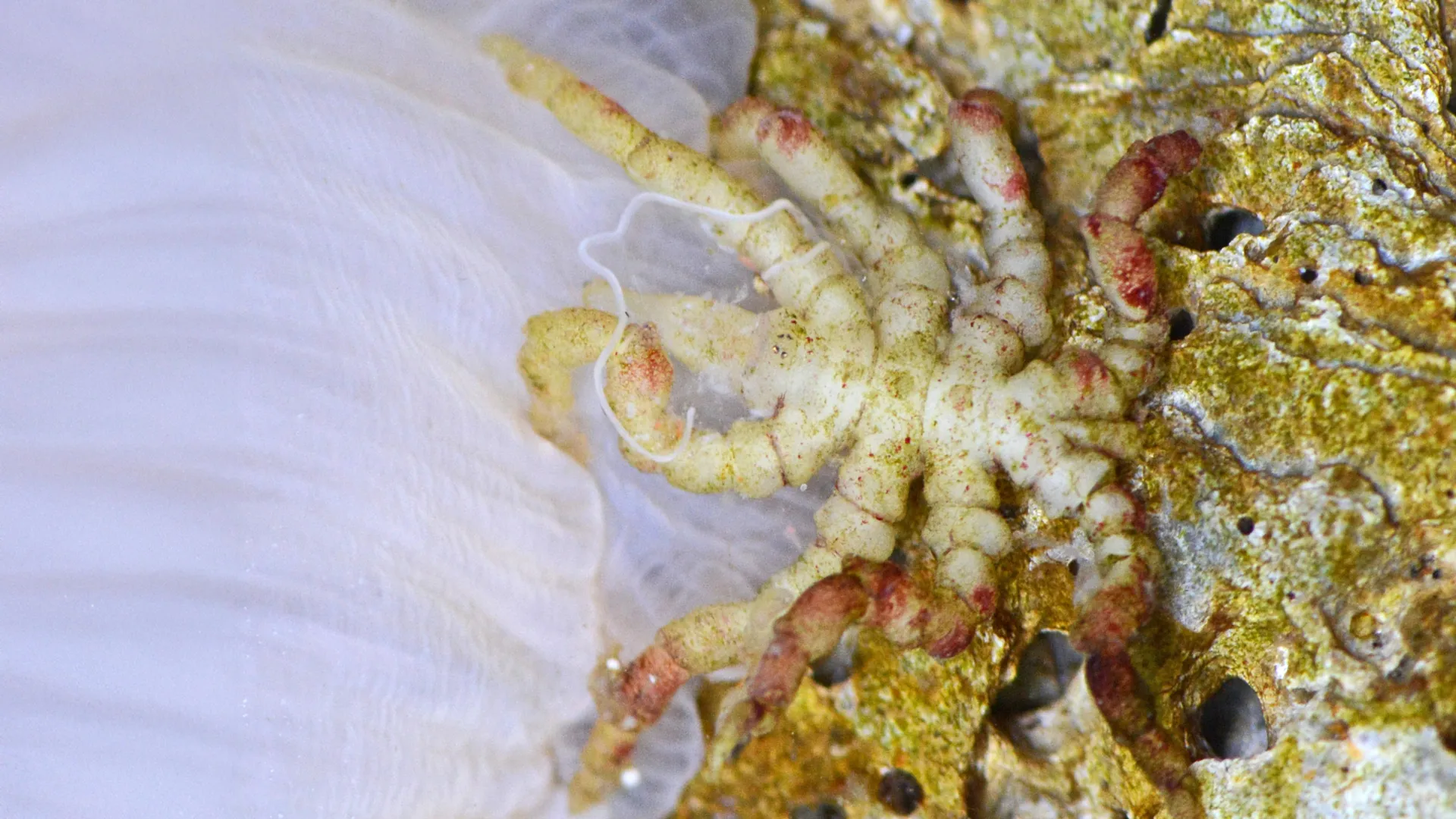Now Reading: Lost Gene Reveals Secrets Behind Sea Spider’s Unusual Leggy Anatomy
-
01
Lost Gene Reveals Secrets Behind Sea Spider’s Unusual Leggy Anatomy
Lost Gene Reveals Secrets Behind Sea Spider’s Unusual Leggy Anatomy

Quick Summary
- Researchers from the University of Vienna and University of Wisconsin-Madison have successfully created a chromosome-level genome assembly for the sea spider (Pycnogonum litorale), marking a milestone in understanding chelicerate evolution and body plan development.
- Sea spiders are marine arthropods wiht unusual anatomy, including reduced abdomens, extended internal organs in legs, and narrow trunks.
- Using long-read sequencing and spatial DNA organization technologies, scientists reconstructed 57 pseudochromosomes of P. litorale, representing nearly its entire genome at high resolution.
- The study revealed the absence of an crucial Hox gene (abdominal-A), which could explain the extreme reduction of sea spider abdomens seen in their anatomy-and draws parallels to similar reductions in other arthropods like mites and barnacles.
- Comparative analysis suggests ancient genome duplications common among spiders or scorpions are absent from sea spiders, hinting that these duplications occured later in chelicerate evolution.
- Researchers aim to use this genomic data for further studies on gene regulation, development, regeneration mechanisms, and evolutionary success among arthropods.
Indian Opinion Analysis
The breakthrough genome assembly for Pycnogonum litorale contributes significantly to evolutionary biology by providing insights into genetic mechanisms shaping unique body plans within arthropods. India’s strong tradition of biological research can benefit immensely from such findings by fostering deeper collaborative efforts with global partners to study key biodiversity aspects. This specific advancement helps unveil genetic interactions behind anatomical adaptations-potentially promoting better understanding about regeneration or developmental genetics applicable beyond marine organisms.
For India’s own flourishing fieldwork along coastal stretches rich with marine life diversity (like Lakshadweep or Andaman ecosystems), cutting-edge techniques demonstrated hear could motivate studies on native species under similar molecular frameworks. Moreover, broader exploration into loss-of-function genes might enhance knowledge relevant not only for evolution but possibly biomedical innovations targeting regenerative medicine.
As climate change challenges ecosystems globally-India included-the ability to decode adaptive processes as revealed here offers pathways toward informed conservation strategies rooted firmly within genomic sciences-identifying traits aiding survival over millennia such-focused collaborations crucial safeguarding its solutions invaluable!























